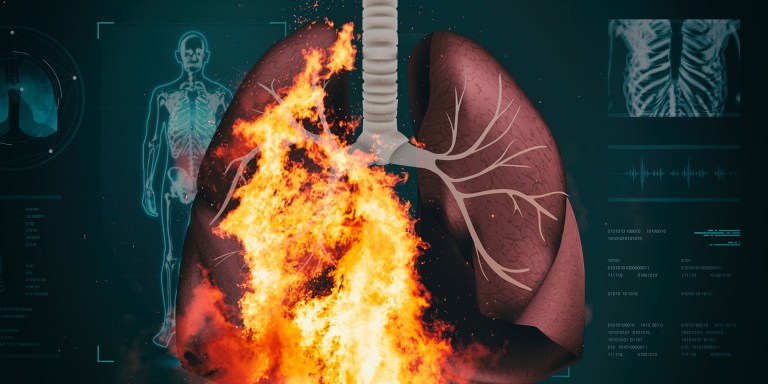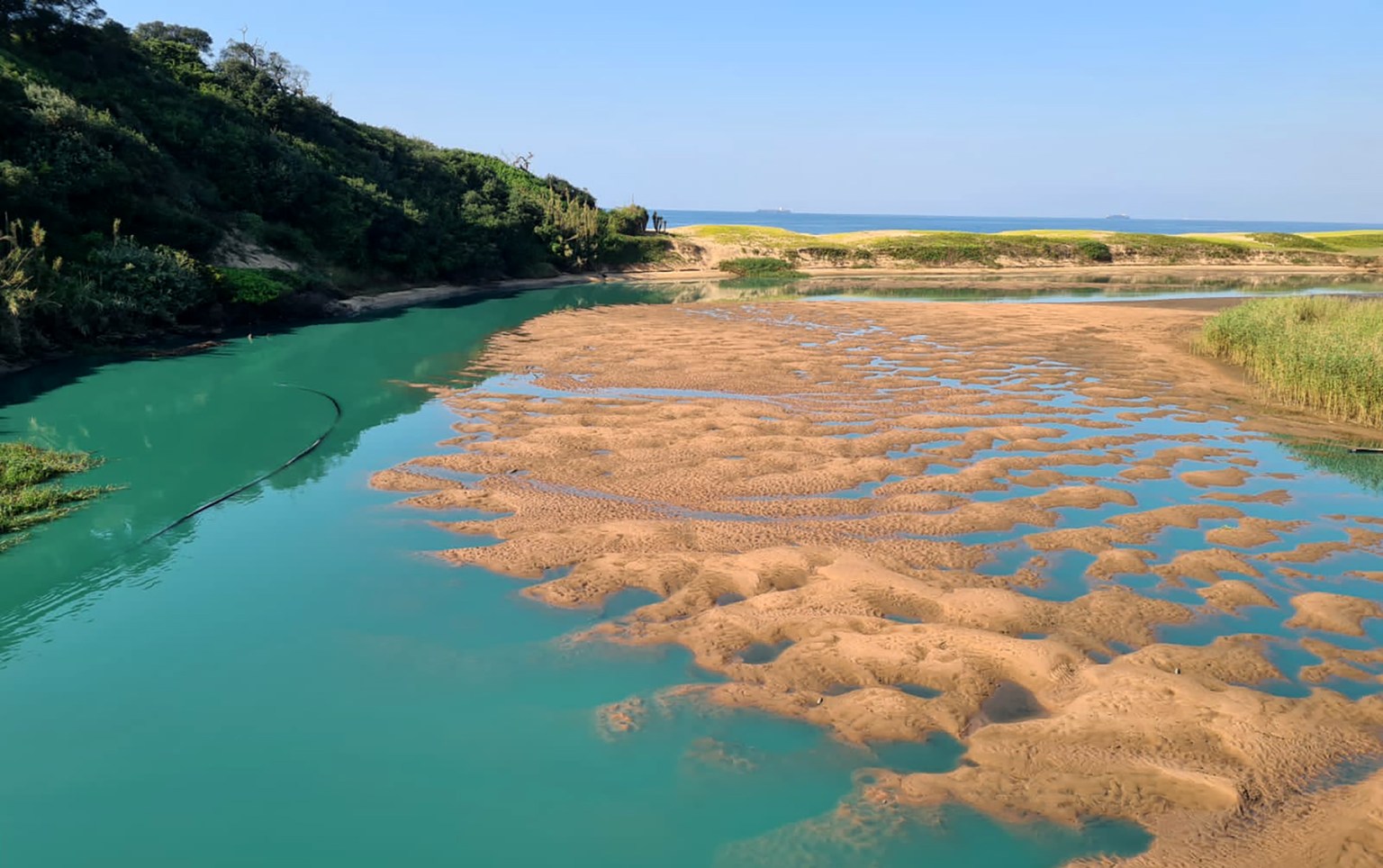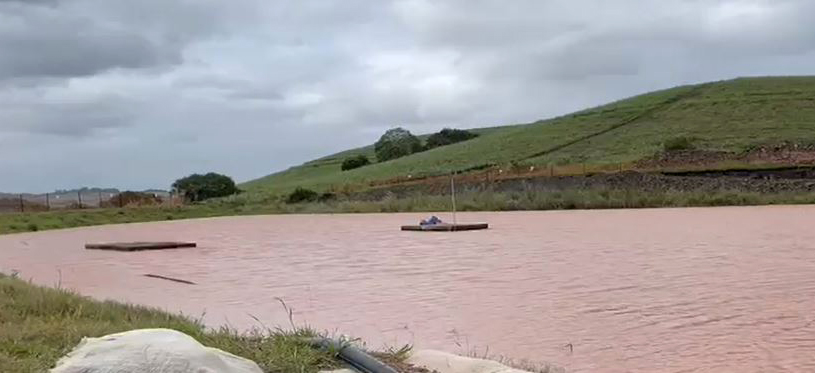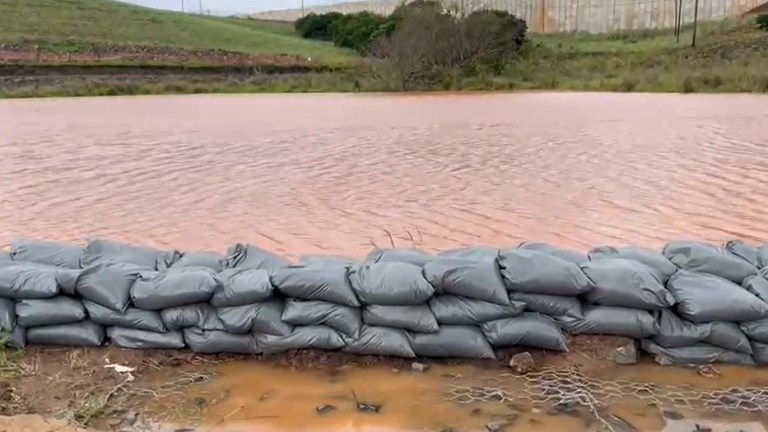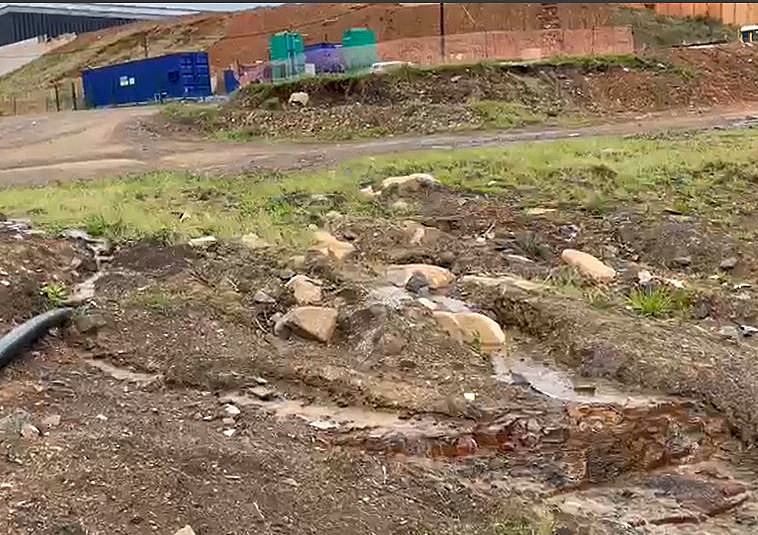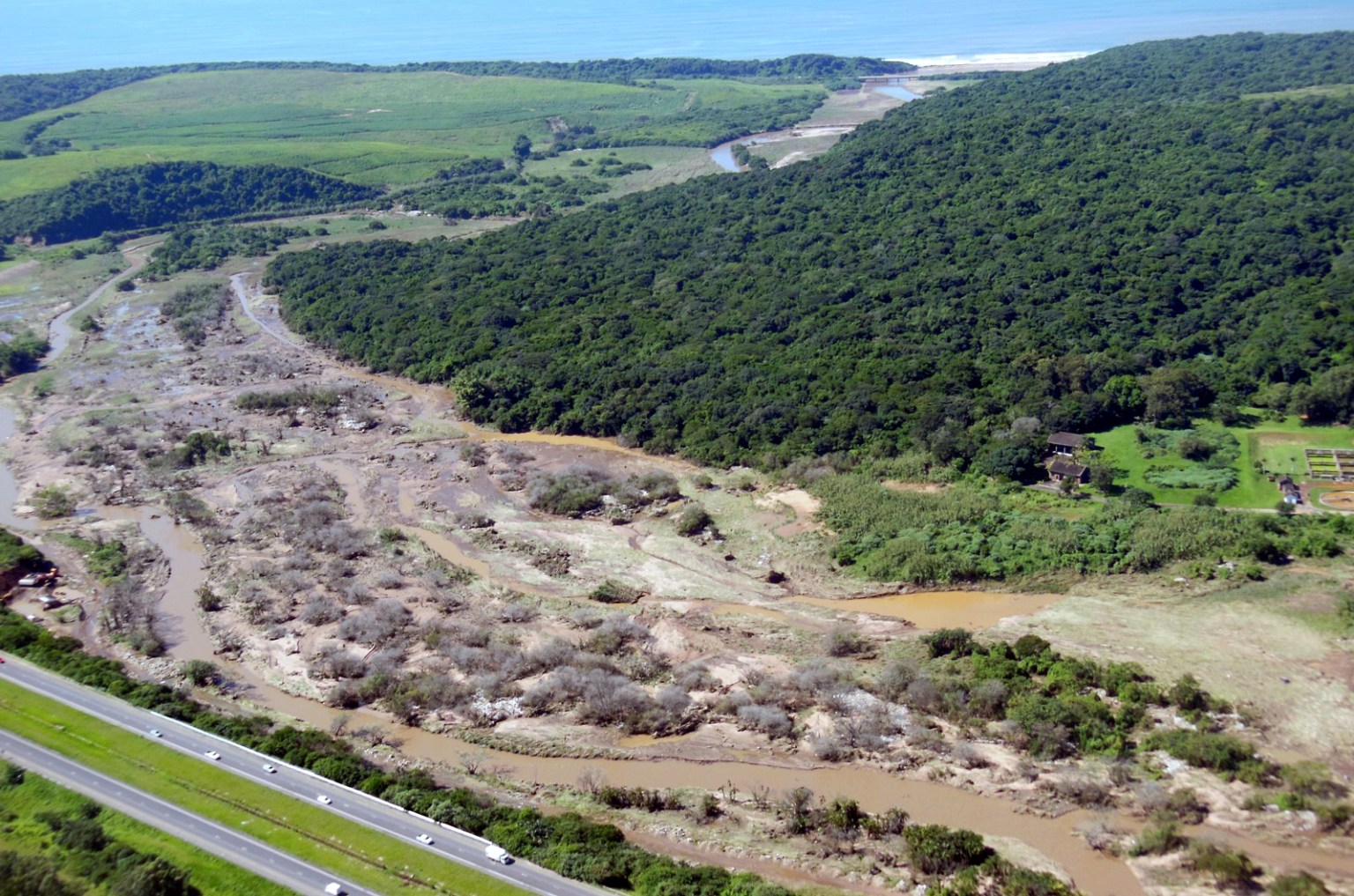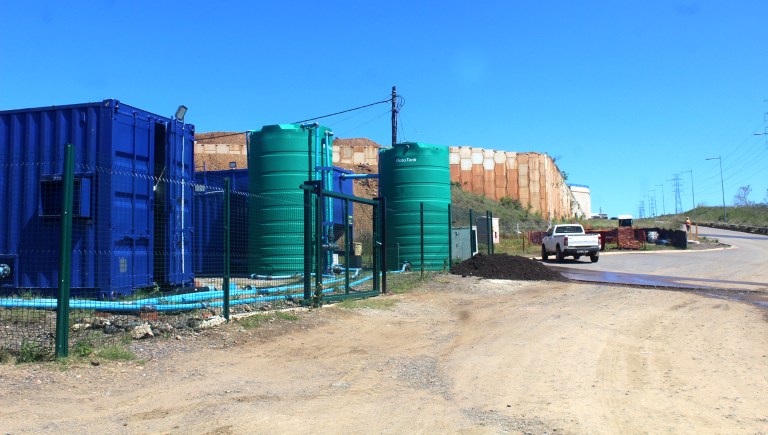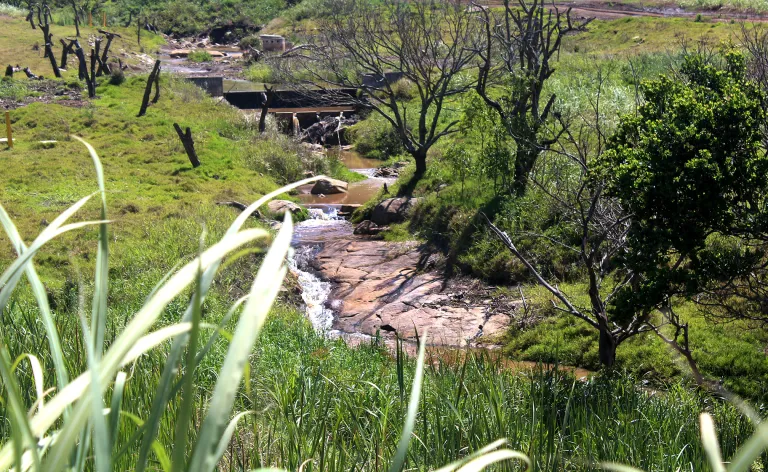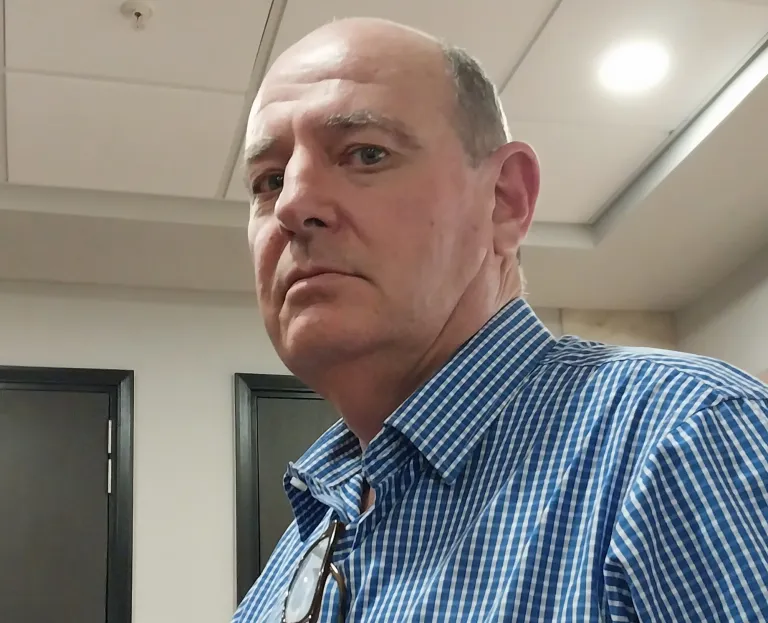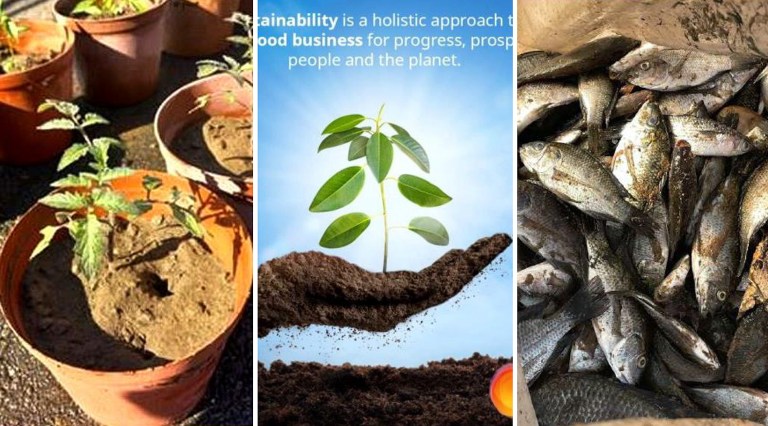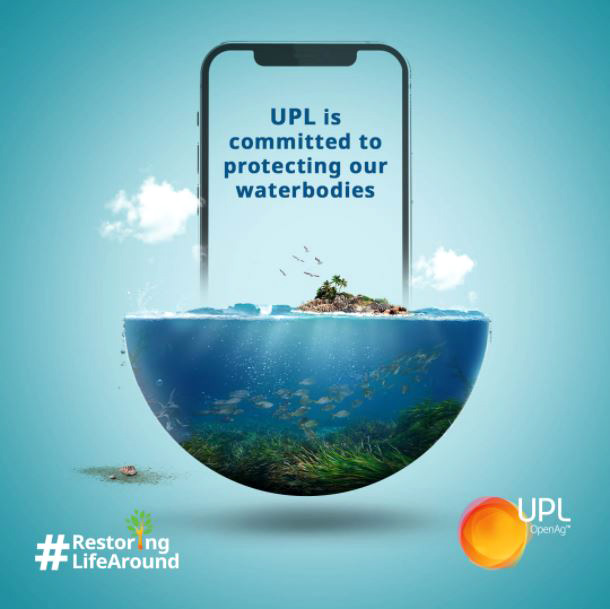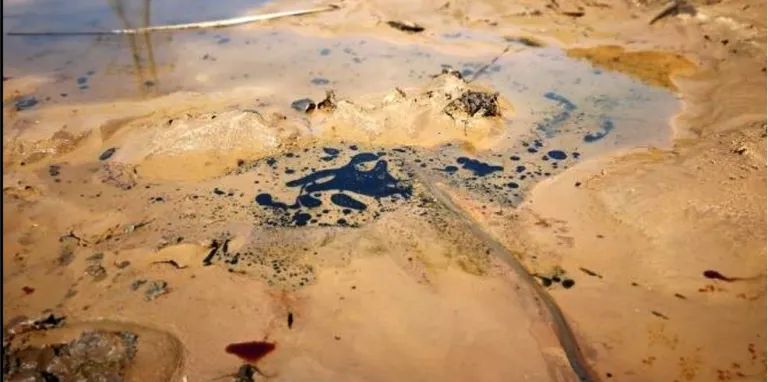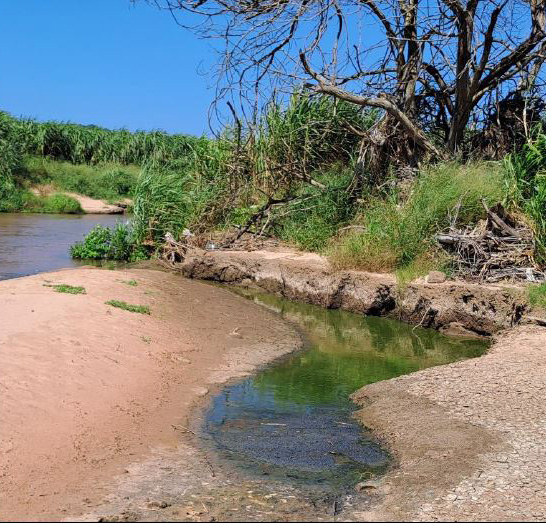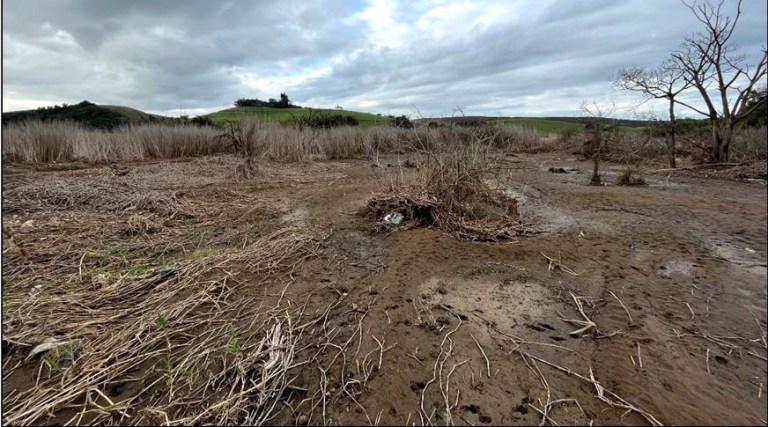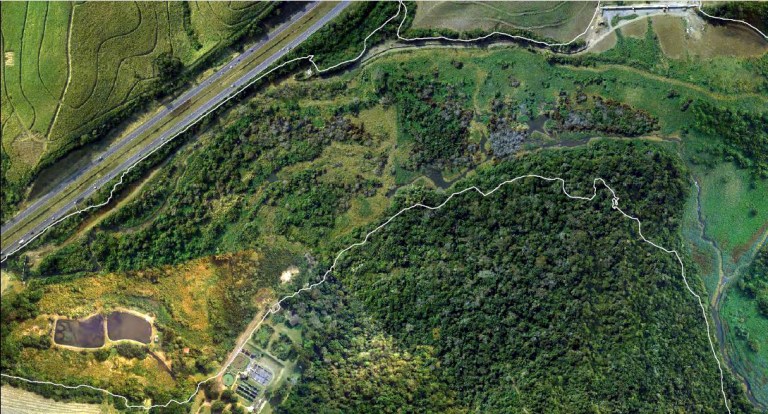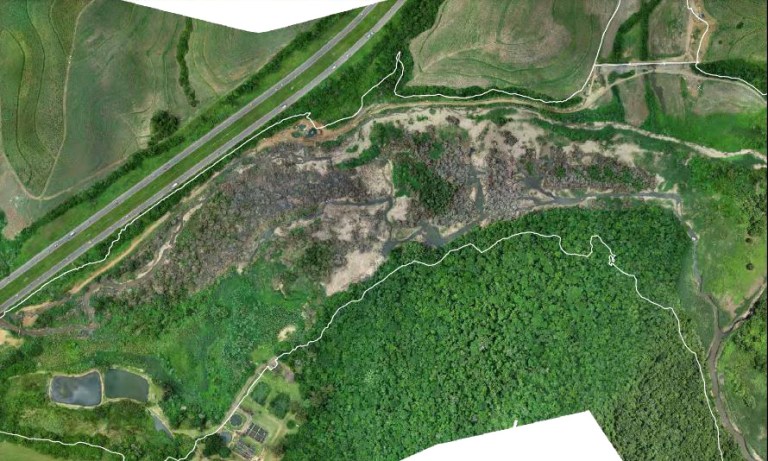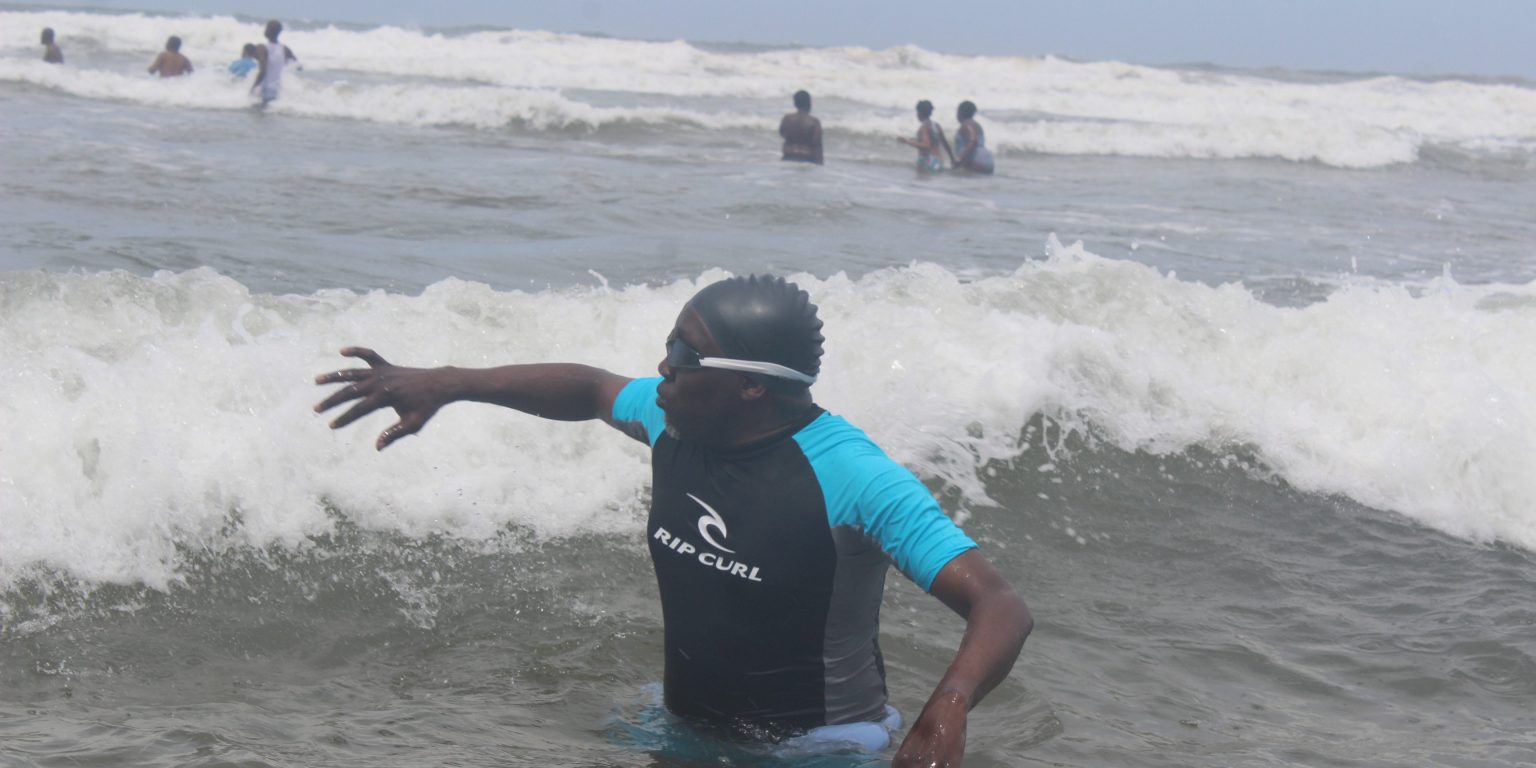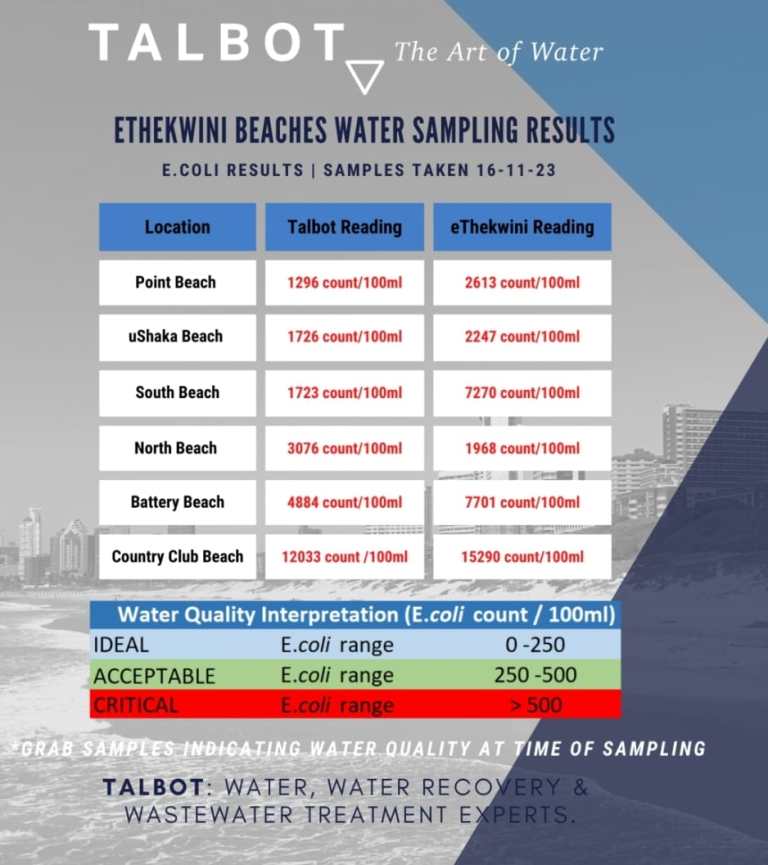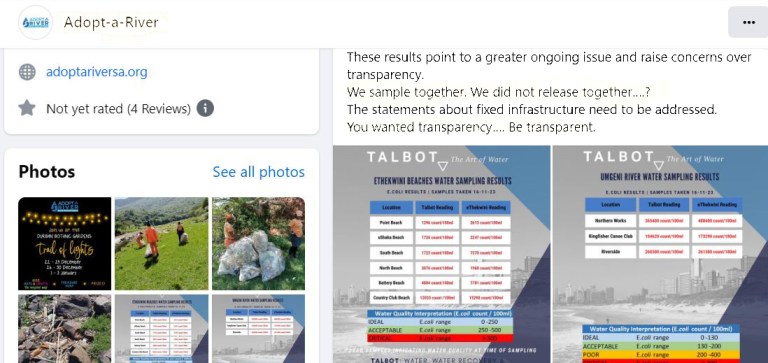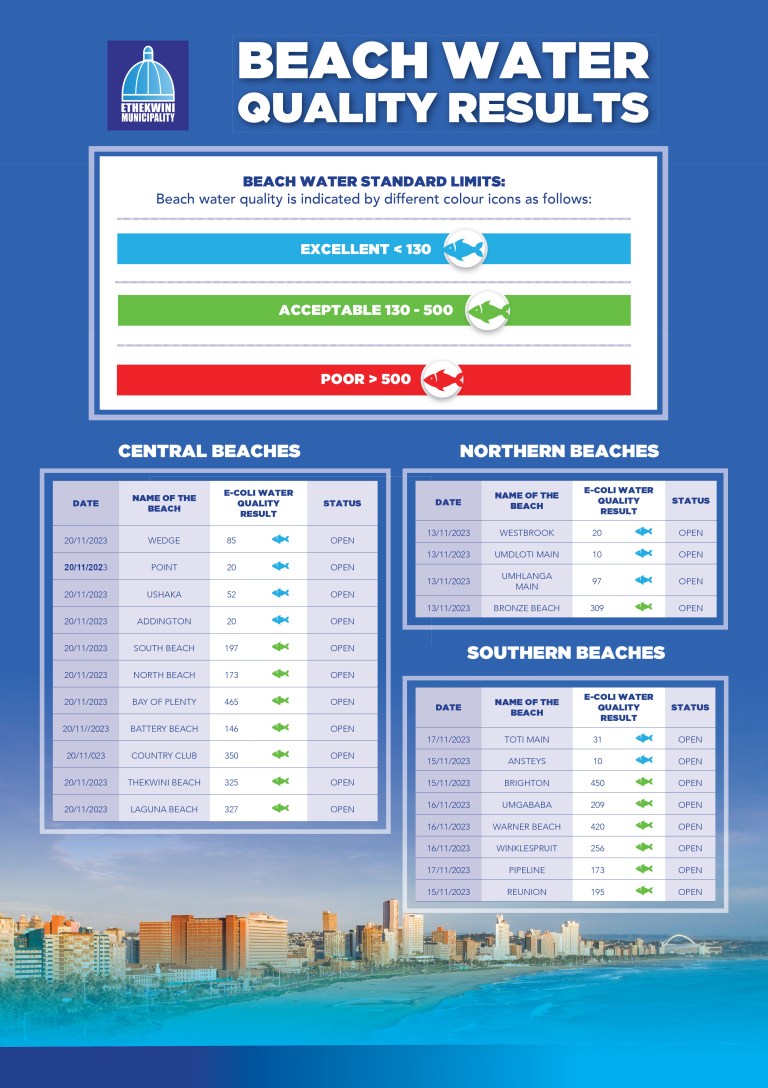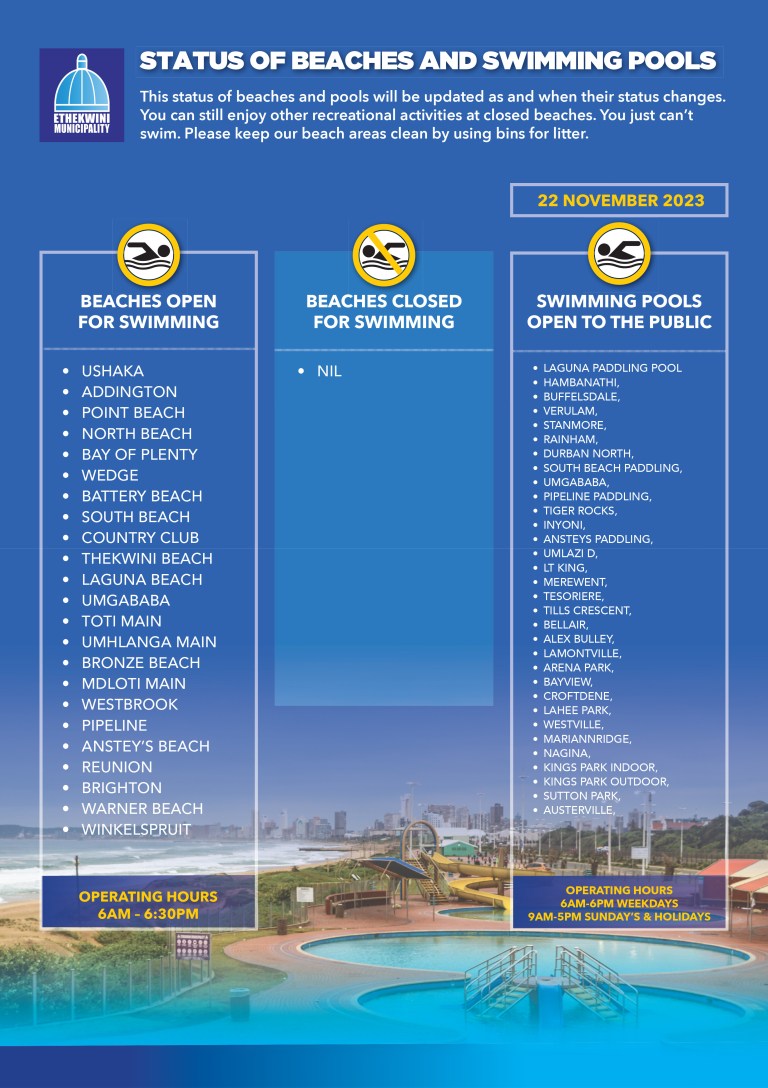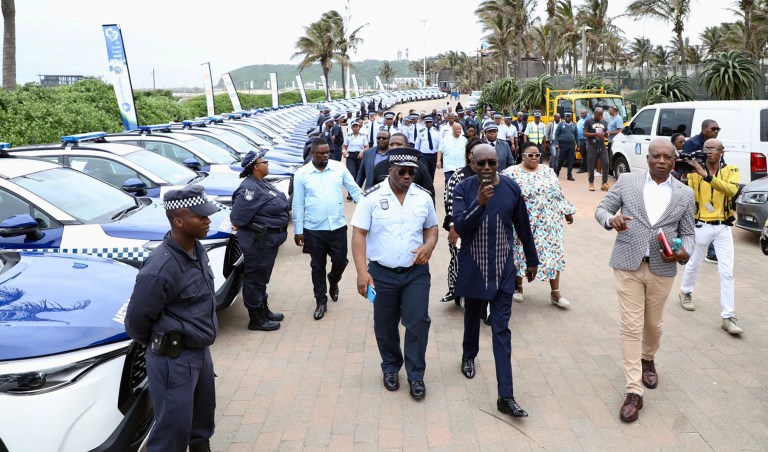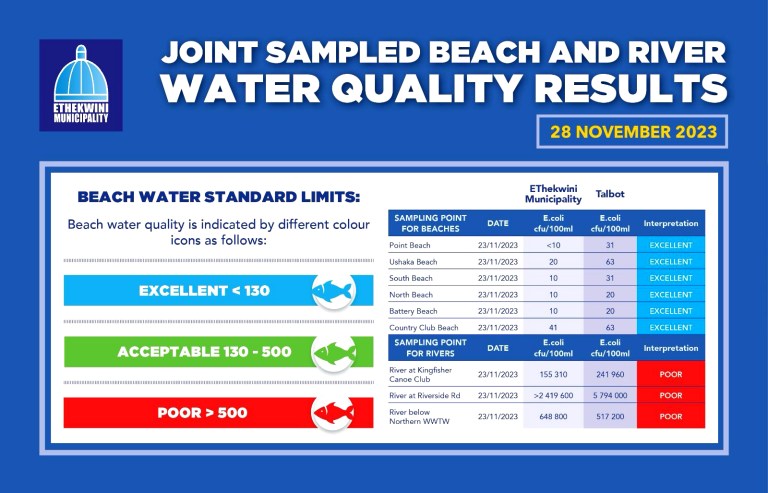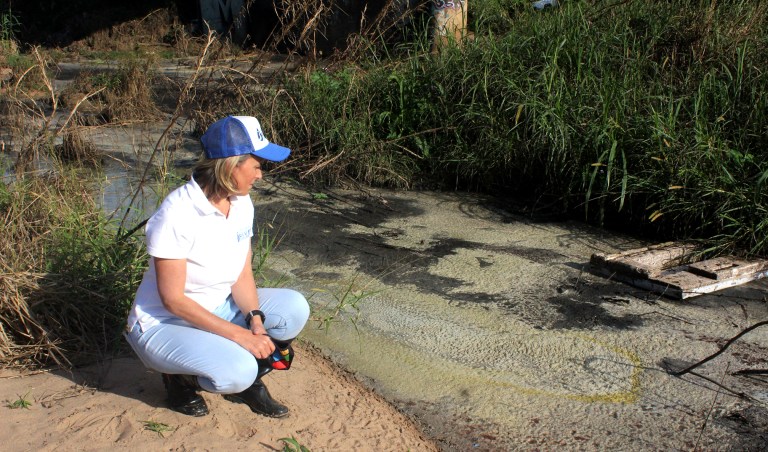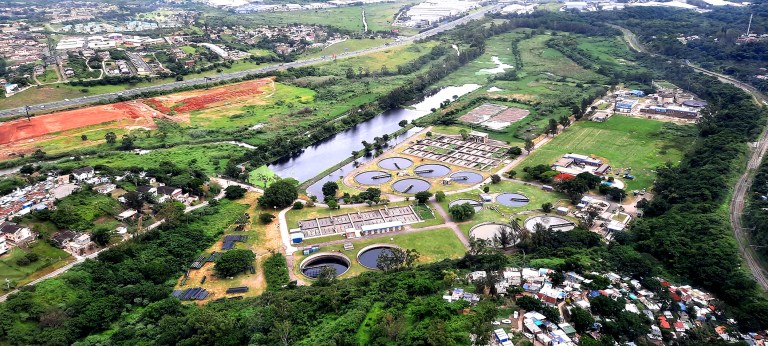Re: The State of The Rivers/Oceans/Water
Posted: Tue Jun 27, 2023 5:40 pm
Mpumalanga municipality fined R70m for Vaal River sewage pollution
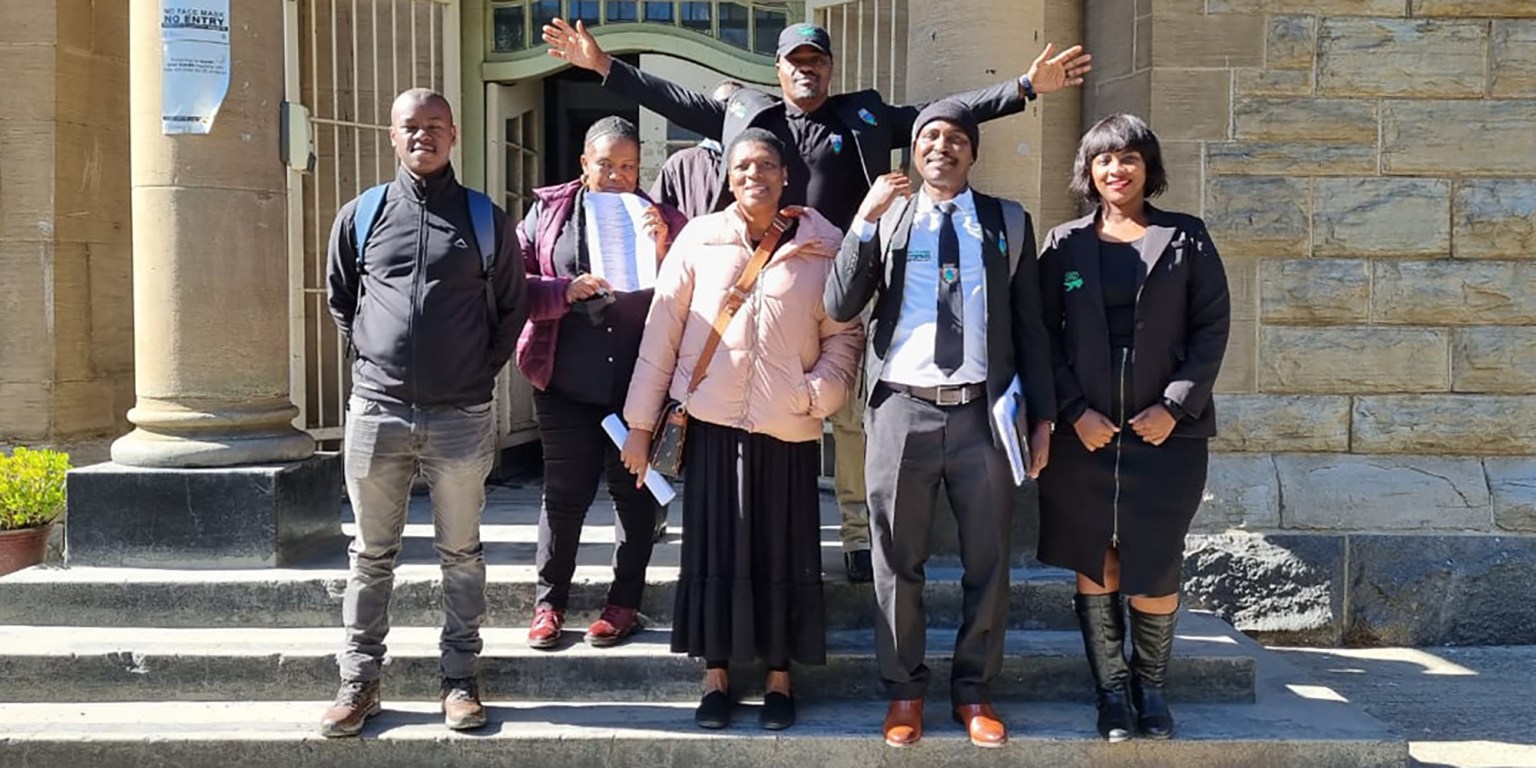
Members of the joint Blue Scorpions and Green Scorpions environmental management investigating team in Mpumalanga acknowledge their successful prosecution of the Lekwa local municipality. Outside the Standerton Regional Court last week are, from left: Lesley Moremi, Thandi Mopai, Gezephi Nyalunga, Musa Luhlanga, Xolile Mhlakoana and investigator Maanda Alidzulwi (back, hands raised). (Photo: Supplied)
By Tony Carnie | 25 Jun 2023
The Lekwa Local Municipality was fined R70m for failing to stop sewage from flowing into the Vaal River. The penalty is among the highest on record in SA for an environmental crime
_______________________________________________________________________________________________________________
A municipality in Mpumalanga has been fined R70-million and put on strict terms to plug the torrent of raw or semi-treated human sewage and factory muck that has been pouring into the Vaal River near Standerton for more than five years.
The fine, imposed last week on the Lekwa Local Municipality by the Standerton Regional Court, is among the highest on record in South Africa for an environmental crime and comes at a time when several other municipalities face similar criminal action for their failure to halt the regular fouling of rivers and dams nationwide.
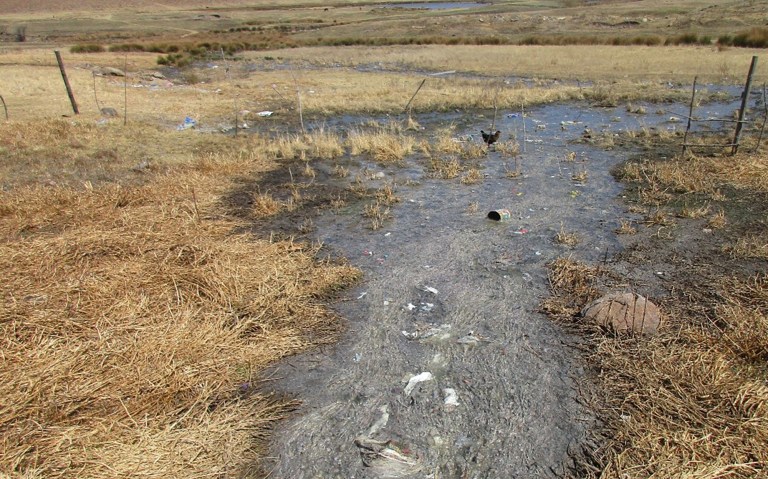
A torrent of untreated sewage flows towards the Vaal River from a pump station in Standerton. (Photo: Supplied)
The prosecution, investigated by Maanda Alidzulwi, a senior Green Scorpions environmental management inspector in Mpumalanga, comes in the wake of a waterborne cholera outbreak that has killed at least 45 people in several provinces.
Last year, Alidzulwi took the Thaba Chweu municipality to court for similar water pollution offences, securing a R10-million fine.
He was also a guest speaker at Daily Maverick’s Gathering: Earth Edition last month, where he warned that pollution of the Vaal River was endangering the health of thousands of people because of the regular and “blatant” dumping of untreated human sewage into local rivers.
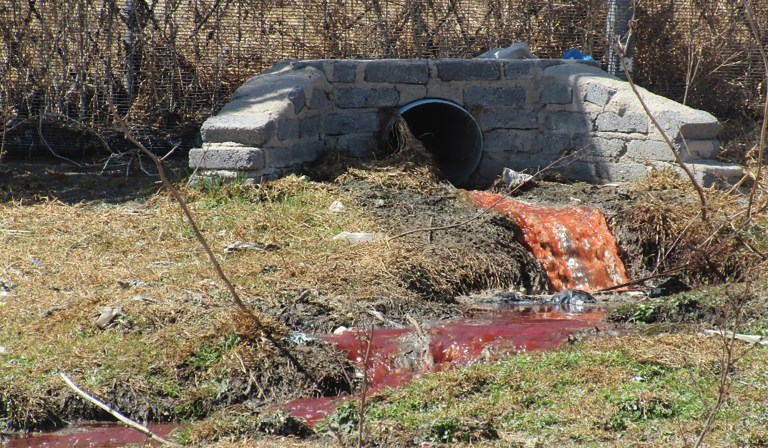
Sewage and factory effluent pours from a pump station operated by the Lekwa Local Municipality. (Photo: Supplied)
He remarked that municipalities seemed oblivious to the fact that several sewage-polluted streams flow into the Vaal, one of the main water supply sources for Johannesburg and other major urban settlements in Gauteng.
Rehabilitate and repair
A condition of the Lekwa prosecution agreement is that the R70-million fine will be used to rehabilitate and repair dysfunctional wastewater treatment works in Standerton and other parts of the Lekwa Local Municipality over the next three years.
Municipal officials will also have to appoint an external auditor and submit detailed reports every three months to Alidzulwi and the national Department of Water and Sanitation on the progress of “urgent and necessary repairs” to municipal wastewater treatment works.
Lekwa will further be compelled to appoint properly qualified and experienced process controllers at its treatment facilities and to ensure that local industries instal new pre-treatment processes to reduce the level of oils, sludge and inorganic solid matter sent to the municipal treatment works.
Lekwa, represented by municipal manager Malose Johan Lamola, pleaded guilty to seven criminal counts in terms of a plea and sentence agreement under section 105A of the Criminal Procedure Act.
The offences included:
It states that raw or untreated human sewage had also flowed from at least five municipal pump stations (Stein, Rooikoppen, Johan, Muller and Taljaard streets).
This had led to significant pollution of the environment and groundwater as well as public land, farms and residential areas.
The guilty plea agreement acknowledges that Standerton lies on a large, open plain where much of the polluted water drains into the Vaal River.
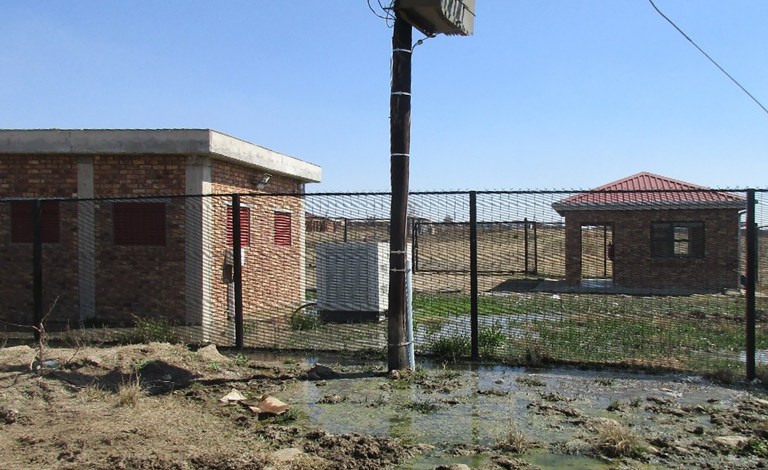
Wastewater overflows from a pump station. (Photo: Supplied)
While the municipal wastewater system was designed to treat up to 18 million litres of effluent per day, it was evident that the main treatment works and several substations were currently not operational.
Lamola admitted that poor management of the Standerton treatment works had resulted in “significant pollution and degradation of the environment” – including the Vaal River – and numerous spillages on to grazing land and cropland.
Read more in Daily Maverick: Sewage continually draining into Vaal Dam as overburdened, underserviced water treatment plants fail
Not only did the stench of sewage cause a public nuisance, but harmful bacteria also created a health risk for residents of Standerton and neighbouring areas.
The agreement notes that municipalities and other state organs are not immune from transgressions of the Constitution and environmental laws and – like any other business entity – Lekwa was obliged to comply with national water and environmental laws.
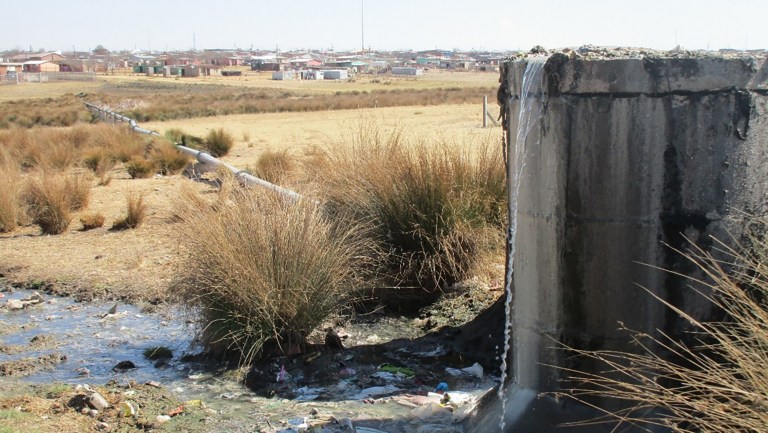
Sewage and factory muck has been flowing into the environment, farmlands and rivers for more than five years because of poor management of municipal wastewater around Standerton. (Photo: Supplied)
“The flagrant, repeated and continued breach of the environmental laws by the accused forced the complainant to act by way of a criminal charge in order to protect and manage the environment to give effect to [constitutional rights to a healthy environment].”
The formal criminal complaint was laid by Musa Luhlanga, the regional manager for compliance monitoring in the Gert Sibande District Municipality (Ermelo).
A mitigating factor was that Lekwa had expressed commitment to enforcing municipal by-laws to reduce industrial effluent pollution and to keep sewage discharges to the Vaal River to a minimum.
In addition to the R70-million fine, Lekwa has to pay R500,000 to the national Department of Water and Sanitation and the Mpumalanga Department of Agriculture, Rural Development, Land and Environmental Affairs to cover some of the costs of their environmental pollution investigations. DM

Members of the joint Blue Scorpions and Green Scorpions environmental management investigating team in Mpumalanga acknowledge their successful prosecution of the Lekwa local municipality. Outside the Standerton Regional Court last week are, from left: Lesley Moremi, Thandi Mopai, Gezephi Nyalunga, Musa Luhlanga, Xolile Mhlakoana and investigator Maanda Alidzulwi (back, hands raised). (Photo: Supplied)
By Tony Carnie | 25 Jun 2023
The Lekwa Local Municipality was fined R70m for failing to stop sewage from flowing into the Vaal River. The penalty is among the highest on record in SA for an environmental crime
_______________________________________________________________________________________________________________
A municipality in Mpumalanga has been fined R70-million and put on strict terms to plug the torrent of raw or semi-treated human sewage and factory muck that has been pouring into the Vaal River near Standerton for more than five years.
The fine, imposed last week on the Lekwa Local Municipality by the Standerton Regional Court, is among the highest on record in South Africa for an environmental crime and comes at a time when several other municipalities face similar criminal action for their failure to halt the regular fouling of rivers and dams nationwide.

A torrent of untreated sewage flows towards the Vaal River from a pump station in Standerton. (Photo: Supplied)
The prosecution, investigated by Maanda Alidzulwi, a senior Green Scorpions environmental management inspector in Mpumalanga, comes in the wake of a waterborne cholera outbreak that has killed at least 45 people in several provinces.
Last year, Alidzulwi took the Thaba Chweu municipality to court for similar water pollution offences, securing a R10-million fine.
He was also a guest speaker at Daily Maverick’s Gathering: Earth Edition last month, where he warned that pollution of the Vaal River was endangering the health of thousands of people because of the regular and “blatant” dumping of untreated human sewage into local rivers.

Sewage and factory effluent pours from a pump station operated by the Lekwa Local Municipality. (Photo: Supplied)
He remarked that municipalities seemed oblivious to the fact that several sewage-polluted streams flow into the Vaal, one of the main water supply sources for Johannesburg and other major urban settlements in Gauteng.
Rehabilitate and repair
A condition of the Lekwa prosecution agreement is that the R70-million fine will be used to rehabilitate and repair dysfunctional wastewater treatment works in Standerton and other parts of the Lekwa Local Municipality over the next three years.
Municipal officials will also have to appoint an external auditor and submit detailed reports every three months to Alidzulwi and the national Department of Water and Sanitation on the progress of “urgent and necessary repairs” to municipal wastewater treatment works.
Lekwa will further be compelled to appoint properly qualified and experienced process controllers at its treatment facilities and to ensure that local industries instal new pre-treatment processes to reduce the level of oils, sludge and inorganic solid matter sent to the municipal treatment works.
Lekwa, represented by municipal manager Malose Johan Lamola, pleaded guilty to seven criminal counts in terms of a plea and sentence agreement under section 105A of the Criminal Procedure Act.
The offences included:
- Failing to comply with wastewater management licences;
- Unauthorised disposal of waste;
- Failure to comply with national government compliance notices;
- Unlawful water use;
- Causing significant pollution of the environment;
- Unlawful or negligent disposal of raw sewer effluent; and
- Failure to comply with a notice issued under the National Environmental Management Act.
It states that raw or untreated human sewage had also flowed from at least five municipal pump stations (Stein, Rooikoppen, Johan, Muller and Taljaard streets).
This had led to significant pollution of the environment and groundwater as well as public land, farms and residential areas.
The guilty plea agreement acknowledges that Standerton lies on a large, open plain where much of the polluted water drains into the Vaal River.

Wastewater overflows from a pump station. (Photo: Supplied)
While the municipal wastewater system was designed to treat up to 18 million litres of effluent per day, it was evident that the main treatment works and several substations were currently not operational.
Lamola admitted that poor management of the Standerton treatment works had resulted in “significant pollution and degradation of the environment” – including the Vaal River – and numerous spillages on to grazing land and cropland.
Read more in Daily Maverick: Sewage continually draining into Vaal Dam as overburdened, underserviced water treatment plants fail
Not only did the stench of sewage cause a public nuisance, but harmful bacteria also created a health risk for residents of Standerton and neighbouring areas.
The agreement notes that municipalities and other state organs are not immune from transgressions of the Constitution and environmental laws and – like any other business entity – Lekwa was obliged to comply with national water and environmental laws.

Sewage and factory muck has been flowing into the environment, farmlands and rivers for more than five years because of poor management of municipal wastewater around Standerton. (Photo: Supplied)
“The flagrant, repeated and continued breach of the environmental laws by the accused forced the complainant to act by way of a criminal charge in order to protect and manage the environment to give effect to [constitutional rights to a healthy environment].”
The formal criminal complaint was laid by Musa Luhlanga, the regional manager for compliance monitoring in the Gert Sibande District Municipality (Ermelo).
A mitigating factor was that Lekwa had expressed commitment to enforcing municipal by-laws to reduce industrial effluent pollution and to keep sewage discharges to the Vaal River to a minimum.
In addition to the R70-million fine, Lekwa has to pay R500,000 to the national Department of Water and Sanitation and the Mpumalanga Department of Agriculture, Rural Development, Land and Environmental Affairs to cover some of the costs of their environmental pollution investigations. DM
